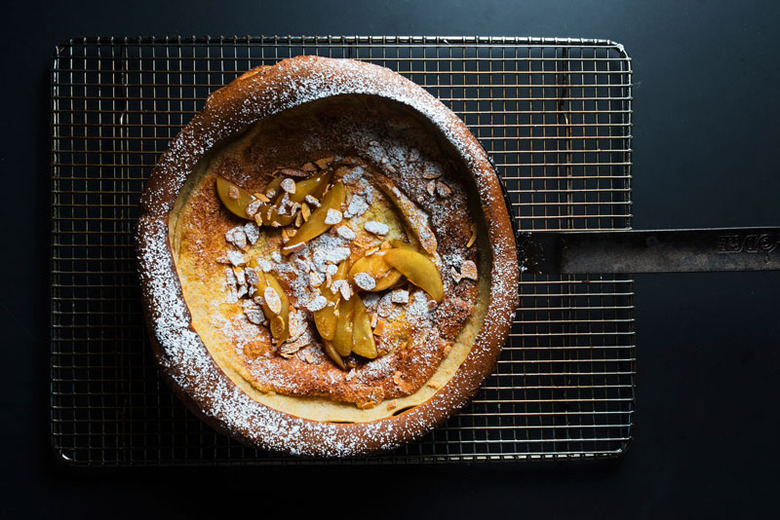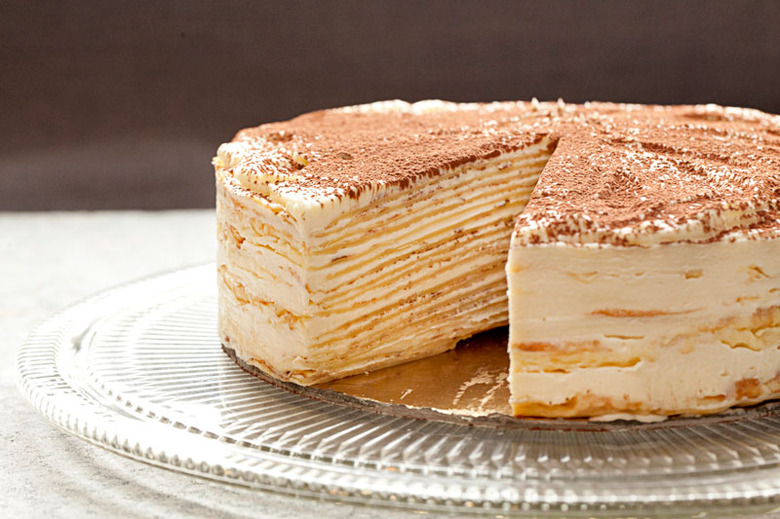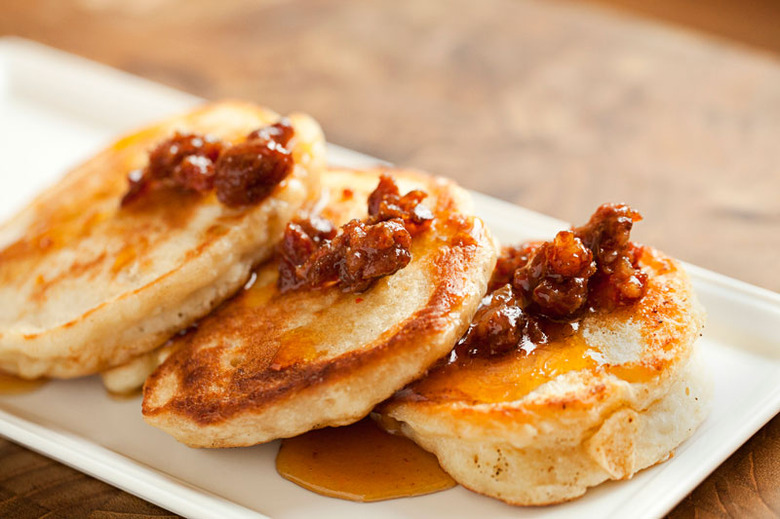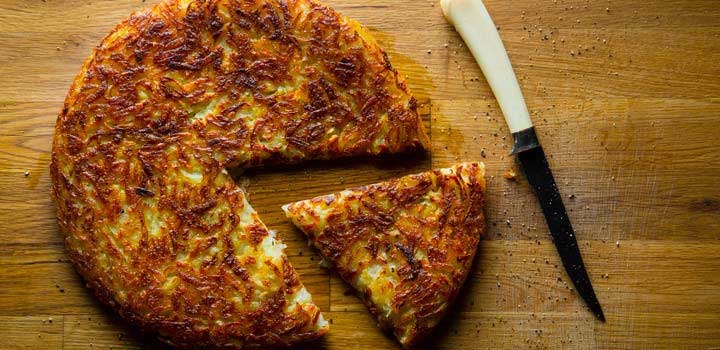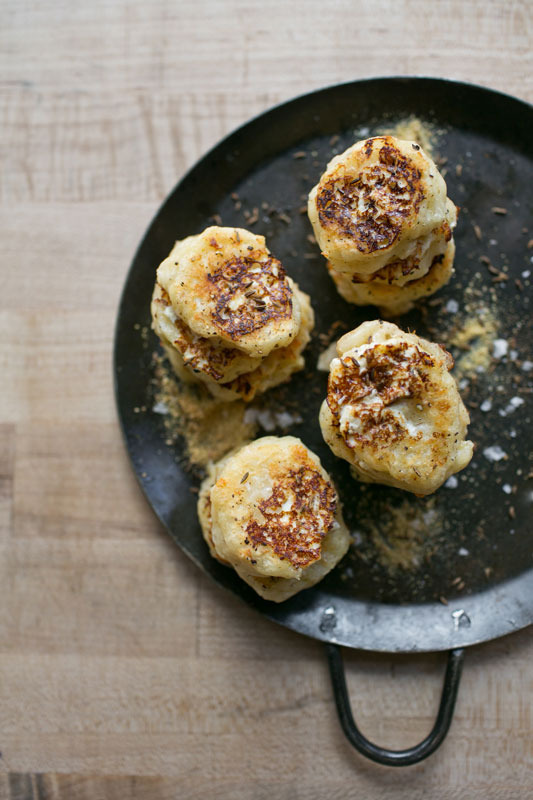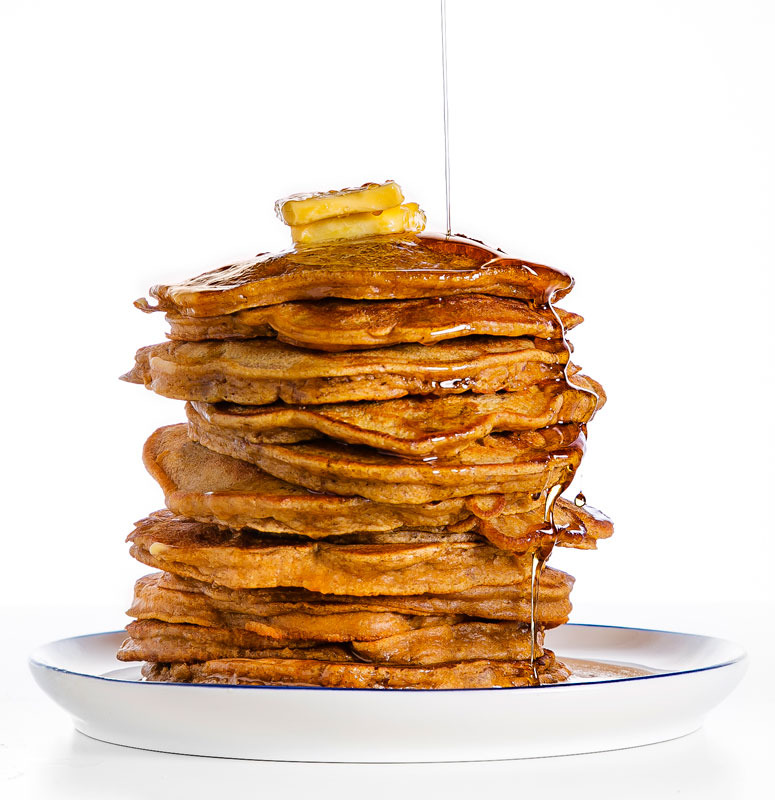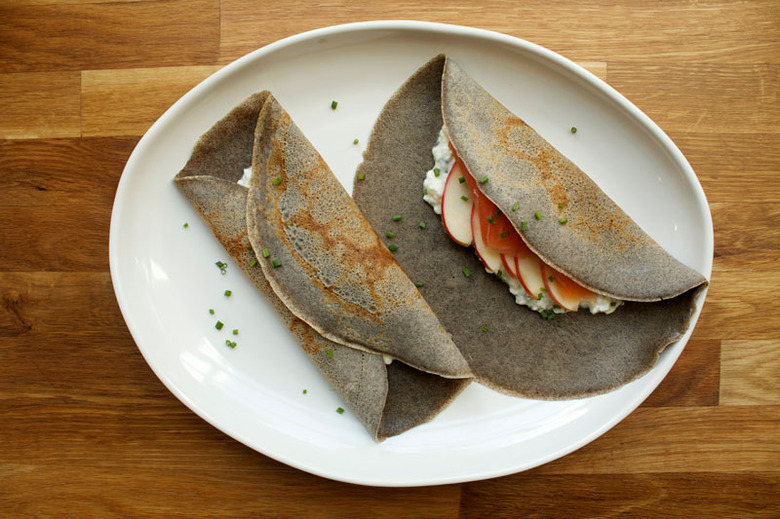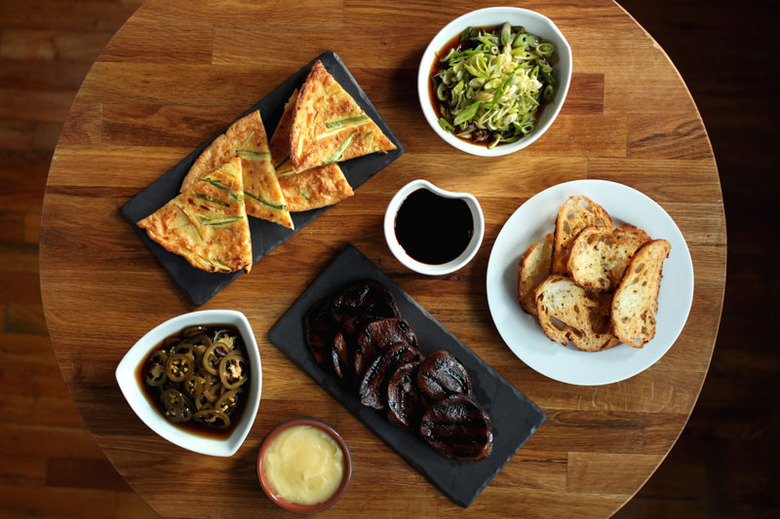Fat Tuesday Pancake Traditions And Recipes
You are a grown-up, tax-paying, semi-responsible adult human being, and you need justify your carb, fat and sugar intake to no one. Still, isn't it nice to have an excuse to go H.A.M. on a gargantuan platter of baked and fried breakfast goodies? Or, even better, if a religious or social mandate said you had to?
Cultures the world over use the Tuesday before Lent to indulge in culinary excess in advance of the season's deprivations. Come with us on a flippin' big pancake odyssey.
United Kingdom: Shrove Tuesday and Pancake Tuesday are a thing across the UK, expressed in various ways depending on the region. Per Potter's American Monthly, Volume 10 (1878), "Many singular customs were anciently kept up in Scotland and Merrie Auld England upon this day, when good Catholics were expected to be shrived from their sins and prepared to keep a holy Lenten fast."
At that time in history, the fast rules frowned on indulgent foods, so butter, eggs and sugar were put to use in a massive fried cake feed that would rid the faithful's homes of temptation.
The way that played out: A "pancake bell" tolled across the land, rousing the drowsy townsfolk as early as 4 a.m. for a feast of griddle-browned "flap-jacks, slap-jacks, fritters, etc." and a few rounds of pancake tossing. The latter activity is a tradition that continues to this very day, with even Kate Middleton making a celebrity skillet appearance in Belfast in 2011.
Since 1445, a ladies' Pancake Race has taken place at Olney in Buckinghamshire, supposedly in homage to a housewife who heard church bells ringing and emerged from her home still flipping a cake in a frying pan. Modern-day participants still take to the streets in dresses, aprons and scarves to run 415 yards with skillet in hand. It's followed by a religious service.
Potter's American also makes note of a Scottish griddle cake variation made of barley, oat and rye called "sauty bannock" that's eaten in abundance on Shrove Tuesday. In days of yore, charms would be buried within the cake. The recipient of a button was doomed to bachelor(ette)hood, while the first people of marriageable age to receive rings had something to celebrate.
Sweden: Happy Fettisdagen! Fat Tuesday is bun day in Sweden, and per the Swedish American Museum, that entails gobbling up semla, a cardamom-spiced wheat bun with its top cut off and the center filled with almond paste that's been mixed with milk or cream. Too austere? It also gets a blast of whipped cream, capped with the bun's sugar-dusted top. Traditionalists may take theirs in a bowl of warm milk, a nod to the classic hetvägg (a simpler bun served in hot milk).
Australia: Down Under, folks flip over thousands of pancakes on Shrove Tuesday in festivities similar to those held in the UK. Melbourne in particular is host to a whole stack of pancake-related activities, from an Annual Gentleman's Eating Competition (the winner is the first man to finish his stack of six and pronounce the word "lovely") to attempts to break stack-building records. Events throughout the country—many sponsored by churches—raise thousands of dollars for community service groups.
United States: Laissez les carbs roulez! Mardi Gras—aka Fat Tuesday—is the country's most notable pre-Lent festivity (and excuse to call in "sick" to work), and all manner of indulgences loom large. At the end of a long, booze, fatty, sugary carnival season, revelers in New Orleans (where it's a legal state holiday) manage somehow to find room for one last slice of King Cake. Though modern bakers have played fast and loose with the fillings, the ring shape is nonnegotiable, and it's usually centrally swirled with cinnamon and dusted in green, gold and purple sugar to represent the three kings who visited the 12-day-old baby Jesus on Epiphany. There's also a small baby figurine tucked inside and the person who finds is it subject is subject to special treatment—and is on the hook to provide the cake the next year.
RELATED The Festival of Fried Dough "
Pennsylvania Dutch devotees of pastry will celebrate Fasnacht Day (the Maryland variation is Kuechles or Kinklings, and many bakeries sell them only on Shrove Tuesday), eating doughnuts that, depending on regional tradition, may be round and raised, or flat and rectangular with a slit across the top.
And for sweets lovers of Polish (or really any) descent, the Tuesday before Ash Wednesday is the highly anticipated Pączki Day. Back in the mother country, they're eaten on Fat Thursday the week before, but we Americans will take our fried, eggy, lardy, custard- or jam-stuffed dough where we can.


